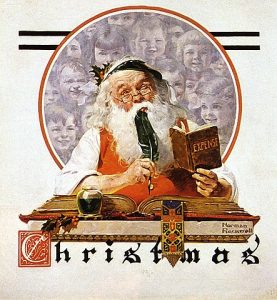With the holiday season fast approaching, it’s time to consider gift ideas for family and friends. If they enjoy historical fiction, or reading about history, give them a trip through time with our top history and historical fiction picks. Choices range from a novel about the early life of William Shakespeare, to a literary memoir by a bestselling author with crossover appeal for both history and historical fiction readers. Click on the titles for additional information and reviews in our catalog.
The Splendid and the Vile: A Sage of Churchill, Family, and Defiance During the Blitz by Erik Larson.
In this gripping account of Churchill’s first year as Britain’s war prime minister (May 1940 – May 1941), Larson focuses on the daily lives of Churchill and his family to provide this compelling account of London during the Blitz.
Exiles: A Novel by Christina Baker Kline.
Kline tells the story of 19th-century colonial Australia through the experiences of three young women whose lives intersect in the penal colony of Van Diemen's land (modern day Tasmania).
The Dead Are Arising: The Life of Malcolm X by Les Payne.
This new biography of Malcolm X is based on nearly 30 years of research by Pulitzer Prize-winning journalist, Payne.It provides fresh insight into the life and death of the human rights activist.
The Evening and the Morning by Ken Follett.
Set in England at the end of the turbulent 10th century, this prequel to The Pillars of the Earth is a must-read for fans of the author’s Kingsbridge series.
This Time Next Year We’ll be Laughing: A Memoir by Jacqueline Winspear.
This literary memoir, by bestselling author Winspear, presents a powerful portrait of life in post-World War II England. Readers of Winspear’s popular Maisie Dobbs historical mystery series will enjoy spotting the connections between the author's life story and the themes, places, and characters in the series.
A Long Petal of the Sea: A Novel by Isabel Allende.
After the Spanish Civil War, Pablo Neruda organized the evacuation to Chile of 2,200 refugees fleeing Franco's fascist regime. Allende's latest novel tells their story.
Caste: The Origins of Our Discontents by Isabel Wilkerson.
The Pulitzer Prize-winning journalist looks at the history of racism in the United States through the lens of caste. She compares the American system with the caste systems of India and Nazi-era Germany.
Hamnet: A Novel of the Plague by Maggie O’Farrell.
Shakespeare's 11-year-old son fell victim to the bubonic plague a few years before he wrote one of his most famous plays, Hamlet. This vivid re-imaging of Shakespeare’s early life is centered on the devastating consequences of this tragic event for his family and his art.
The Last Brahmin: Henry Cabot Lodge, Jr. and the Making of the Cold War by Luke A. Nichter.
Historian Nichter provides this compelling account of Henry Cabot Lodge. Lodge was at the center of postwar American foreign policy for over three decades. During the course of his career, he advised five U.S. presidents of both political parties, and served as ambassador to the United Nations, Vietnam, West Germany, and the Vatican.
The Book of Lost Friends: A Novel by Lisa Wingate
The author’s inspiration for this story is a newspaper column called “Lost Friends,” published by the Southern Christian Advocate, to help people find missing loved ones after the Civil War. In this absorbing tale, the narrative switches back and forth between Hannie Gossett, a young sharecropper in 1875 Louisiana, and Benny Silva a young teacher in small-town 1987 Louisiana.
Eat the Buddha: Life and Death in a Tibetan Town by Barbara Demick
Demick profiles a group of Tibetans from Ngaba County, a remote part of Sichuan Province, to provide an illuminating history of Tibet under Chinese rule. The area has been at the center of Tibetan resistance for decades and, in recent years, has become synonymous with tragic self-immolations.
The Cold Millions: A Novel by Jess Walter
In this story of early 1900’s America, two young orphaned brothers move to Spokane, Washington looking for seasonal work. They become involved in the Spokane free-speech riots of 1909-1910. As he brings the economic struggles and class divisions of the time vividly to life, Walter mixes fictional characters and historical figures. One example is Elizabeth Gurley Flynn, a union organizer who comes to Spokane to speak for “the cold millions with no chance in this world.”



Add a comment to: Holiday Gift Ideas for History/Historical Fiction Fans